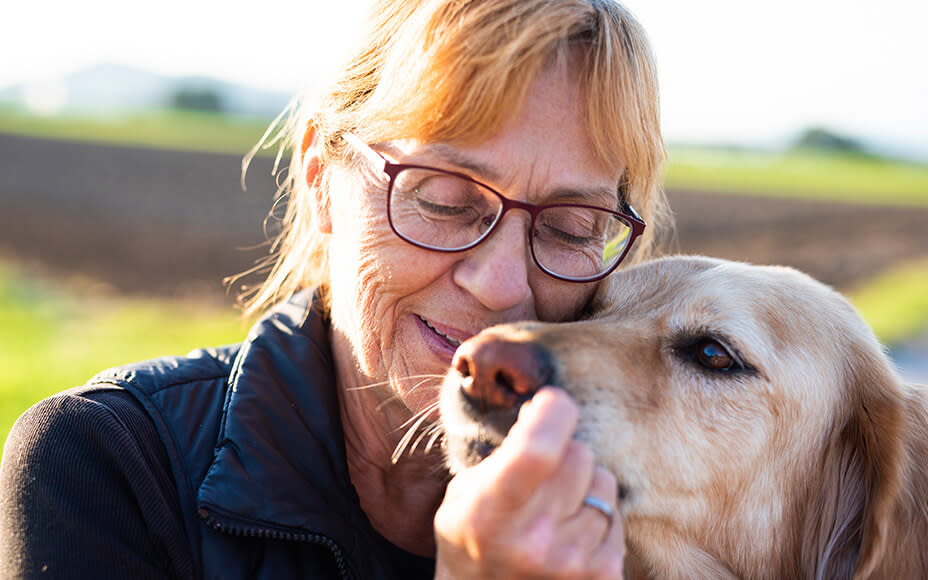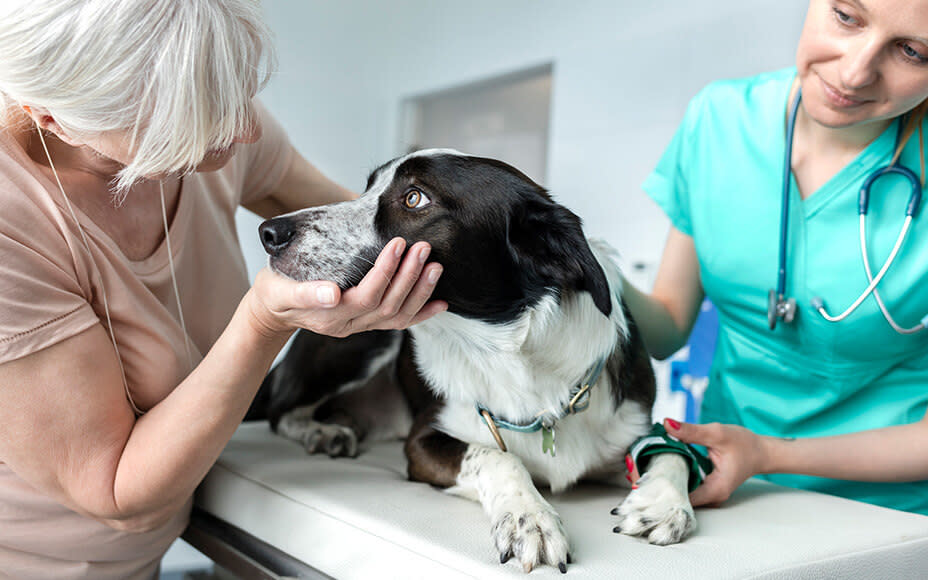Dogs can also suffer from dementia. Learn to recognize the symptoms and how you can help your dog.
What is dementia in dogs?
Dementia (or Alzheimer’s) is a well-known condition in older humans. However, what few people may know is that our canine companions can also suffer from dementia, exhibiting symptoms such as disorientation and memory loss. In veterinary medicine, this condition is referred to as cognitive dysfunction syndrome and is more prevalent than you might think.
It is an incurable disease of the nervous system, involving the death of nerve cells and changes in brain structures due to the accumulation of various proteins. Similar to humans, this disease is associated with impairment of memory, recollection, attention, behavior, and perception.
According to studies, up to 28% of 11-12-year-old dogs and up to 68% of 15-16-year-old dogs suffer from cognitive dysfunction syndrome. Therefore, the disorientation observed in your senior furry friend may well be explained by this condition.

How Does Dementia Manifest in Dogs?
It is not always easy to distinguish dementia from the normal signs of aging.
Observe your furry friend carefully and pay attention to the following commonly occurring symptoms:
Disorientation:
- Getting lost in familiar surroundings
- Wandering aimlessly
- Staring into space or fixating on objects
- Remaining stuck behind furniture
- Heading to the wrong door when wanting to go to the garden
- Walking in the wrong direction towards the food bowl
Changes in Behavior:
- Reduced or increased desire for petting and attention
- Decreased joy upon the return of the owner
- Altered behavior with familiar people or other animals
- Sudden separation anxiety, even if it was never a problem in younger years
- Licking objects, people, or oneself
- Increased or decreased appetite
- Anxiety
- Increased vocalization (howling, barking)
Altered Sleep Patterns:
- Increased daytime sleep
- Being awake at night
- Evening restlessness and increased panting
- Sudden waking from sleep
Forgetfulness:
- Forgetting simple commands like “sit” or “stay”
- Loss of house-training
- Failure to recognize familiar people and animals
If you notice one or more of these symptoms in your elderly furry friend, seek veterinary advice. Some of these signs may also be symptoms of other diseases such as diabetes mellitus, Cushing’s disease, or arthritis and can only be ruled out through a veterinary examination.

How Can a Diagnosis Be Made?
Unfortunately, there is no specific test that can definitively diagnose dementia in dogs. Instead, it involves a comprehensive assessment of your dog’s medical history and the exclusion of other organic diseases.
Pay close attention to the changes you observe in your furry friend. Based on this, along with a clinical examination and possible additional tests, your veterinarian will make a diagnosis.
Is There a Therapy for Dementia?
As mentioned earlier, dementia in dogs, like in humans, is an incurable disease. However, there are ways to alleviate symptoms and slow down the progression of the disease.
Medications containing the active ingredient propentofylline promote brain blood flow and may have a positive effect on dementia. Your veterinarian can advise whether pharmacological treatment is appropriate for your senior dog.
Seek veterinary advice regarding feeding as well. Antioxidants, as well as milk thistle and omega-3 fatty acids, can be beneficial for dogs with dementia. Our Vet Joint Fit wet food supports joint metabolism, provides essential omega-3 fatty acids, and includes vitamin E as a natural antioxidant.

What Else Can I Do for My Demented Dog?
Living with a demented dog is certainly not the same as having a healthy young dog. Be patient with your senior furry friend, even if you have to clean up urine puddles more often.
Engage your four-legged friend with small mind games to help keep them mentally stimulated.
Walks in sunlight can contribute to maintaining a regular sleep-wake cycle. Disorientation occurs not only indoors but also outdoors. If you let your dog off-leash during a walk, keep a close eye on them to prevent them from getting lost. A GPS tracker can also be useful – so you always know where your furry friend is.
If your dog seeks more cuddles and is affectionate, pamper them especially and enjoy the precious time with your beloved companion. If your furry friend suddenly wants to cuddle less due to dementia, give your dog the space and peace they need.


